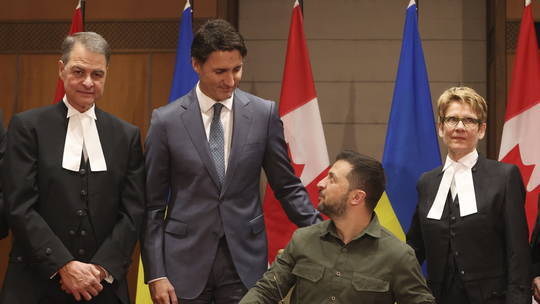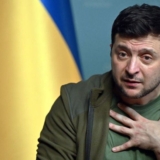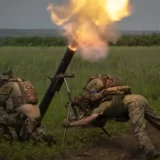Belarus Demands Official Apology from Canada Over Controversial Honoring of WWII SS Veteran
Belarus has issued a formal demand for an official apology from the Canadian government after the Canadian Parliament honored a Ukrainian World War II veteran who served in the Waffen SS forces, sparking outrage from Jewish organizations and international condemnation.
The controversy erupted when Yaroslav Hunka, a 98-year-old former member of the SS 14th Galician Division, was given a standing ovation in the House of Commons during the visit of Ukrainian President Vladimir Zelensky on Friday. The move was met with shock and dismay, particularly from organizations representing Holocaust survivors and Jewish communities worldwide.
In response to the furor, the Foreign Ministry of Belarus issued a scathing statement on Monday, expressing its outrage and deep offense over the parliamentary event. “Belarus, which lost every third citizen in the Second World War, is outraged and deeply offended by the footage of honoring a veteran of the SS division ‘Galicia’ in the House of Commons of the Canadian Parliament,” the statement read.
The Belarusian government went further to suggest that this incident was not a mere accident but rather a reflection of Canada’s long-standing policy. “It is a kind of quintessence of the long-standing consistent policy of the authorities of Canada and a number of countries of the collective West to cover up and whitewash Nazi criminals and to deliberately condone attempts to rewrite history,” the foreign ministry asserted.
Canadian Prime Minister Justin Trudeau’s office responded swiftly to the growing controversy by distancing itself from the parliamentary event. They claimed to be unaware of Hunka’s controversial past and blamed Speaker Anthony Rota for the decision. Rota himself released a statement, saying that he only “subsequently become aware of more information which causes me to regret my decision” to publicly refer to Hunka as “a Ukrainian and a Canadian hero.”
Belarus, however, remains unconvinced by the explanations offered by the Canadian government. The Foreign Ministry of Belarus stated that the “cynical attitude to the memory of thousands of innocent victims of Nazism” was not accidental, as some have claimed. Instead, they see it as part of a broader pattern.
Belarus has called for an “official apology” from the leadership of Canada and demanded that “international and public organizations, associations, and foundations commemorating the victims of World War II give a proper legal and moral assessment of this incident.”
The controversy continues to reverberate on the international stage, raising questions about the responsibility of nations in acknowledging and addressing the dark chapters of history, particularly those involving collaboration with Nazi forces during World War II. Canada’s response to Belarus’ demands remains to be seen, but the fallout from this incident highlights the sensitivity surrounding historical memory and the legacy of World War II.






